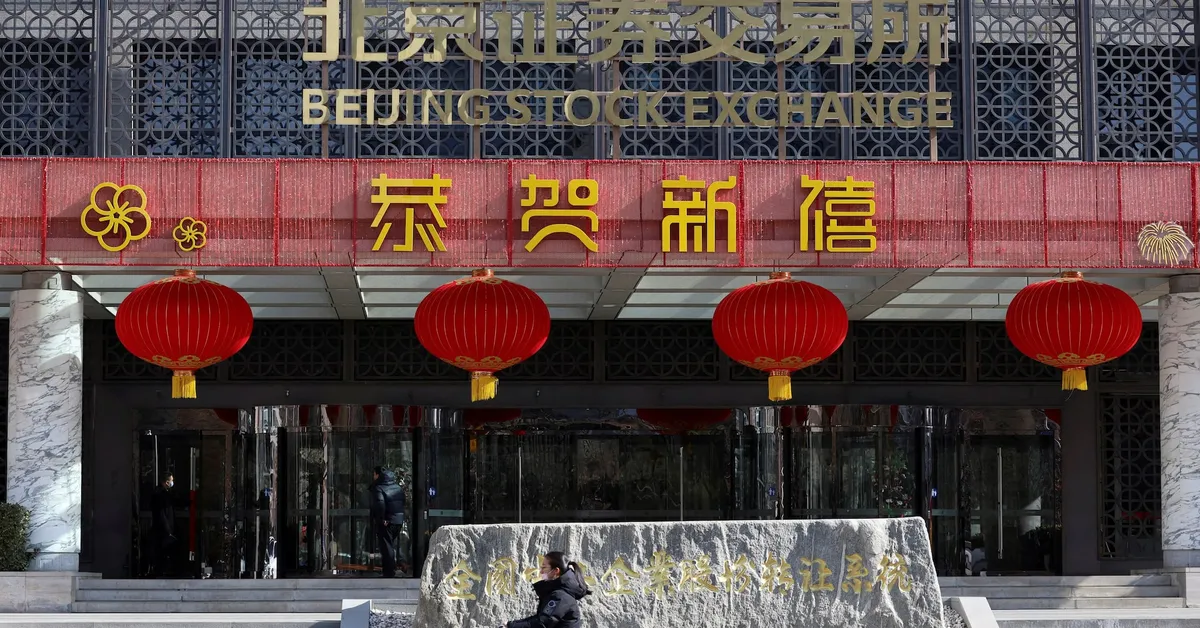
Asian stocks faced a turbulent session on Wednesday, as the market remained jittery while awaiting the highly anticipated details of U.S. President Donald Trump's tariff plans. Investors are increasingly concerned about the potential for an escalating global trade war, which could have significant economic ramifications. As the world watches closely, the focus is on the new round of reciprocal levies that the White House is expected to announce at 2000 GMT, with implementation likely to occur immediately after the announcement.
Trump has already imposed significant tariffs on crucial sectors, including aluminium, steel, and autos, alongside increased duties on all goods from China. These measures have created a ripple effect in the markets, raising fears that a full-blown trade war could lead to a sharp global economic slowdown. Chris Weston, head of research at Pepperstone, noted that the trading environment appears chaotic, with market participants hesitant to commit to positions as they navigate the unpredictable price movements.
Despite Trump declaring April 2 as 'Liberation Day', analysts like Vasu Menon, managing director of investment strategy at OCBC, express skepticism that investors will find relief from tariff-related uncertainties. The potential for retaliation from other countries could escalate the situation, adding to the anxiety among investors.
Beyond tariff discussions, investors are increasingly alarmed by various economic indicators. Recent data revealed that U.S. manufacturing contracted in March after two months of growth. Additionally, inflation at the factory gate surged to its highest level in nearly three years, raising concerns over the implications of tariffs on imported goods. ING economists highlighted that while tariffs are intended to boost U.S. manufacturing, there is growing apprehension regarding their impact on supply chains and the potential for foreign retaliation amid signs of a cooling domestic economy.
Further complicating the situation, a report from the U.S. Labour Department indicated a decline in job openings, with February seeing a drop of 194,000 to 7.568 million, attributed to the uncertainty surrounding tariffs affecting labor demand.
The yield on the benchmark U.S. 10-year Treasury note settled at 4.189% during Asian trading hours, having dipped to 4.133% on Tuesday, marking its lowest level since early March. In the currency markets, trading remained subdued, with the euro holding steady at $1.079125, while the British pound was priced at $1.29125. The Japanese yen showed slight weakness, trading at 149.83 per dollar.
Attention will undoubtedly remain fixed on the upcoming tariff details, especially in light of reports suggesting that Trump's aides are contemplating a plan to raise duties on products by approximately 20% across nearly every country, rather than targeting specific nations or products. Weston from Pepperstone commented that many investors have already adjusted their positions, opting to maintain flat or neutral stances in equities, the U.S. dollar, and Treasuries.
Meanwhile, the price of gold, often regarded as a safe haven during times of financial and political uncertainty, remained robust at $3,132.43 per ounce, up 0.7% and just below the record high achieved in the previous session.
As the market awaits further developments, the implications of Trump's tariff announcements will be critical in shaping investor sentiment and market dynamics moving forward.